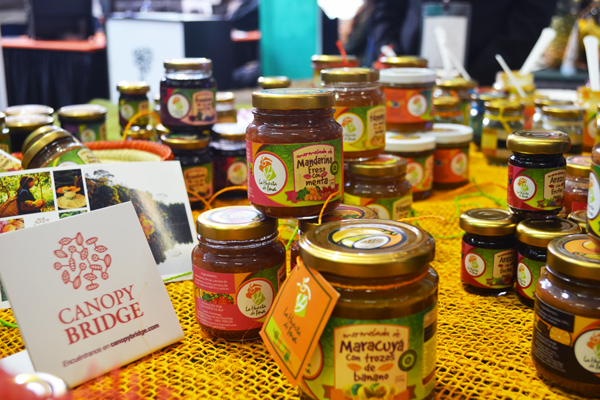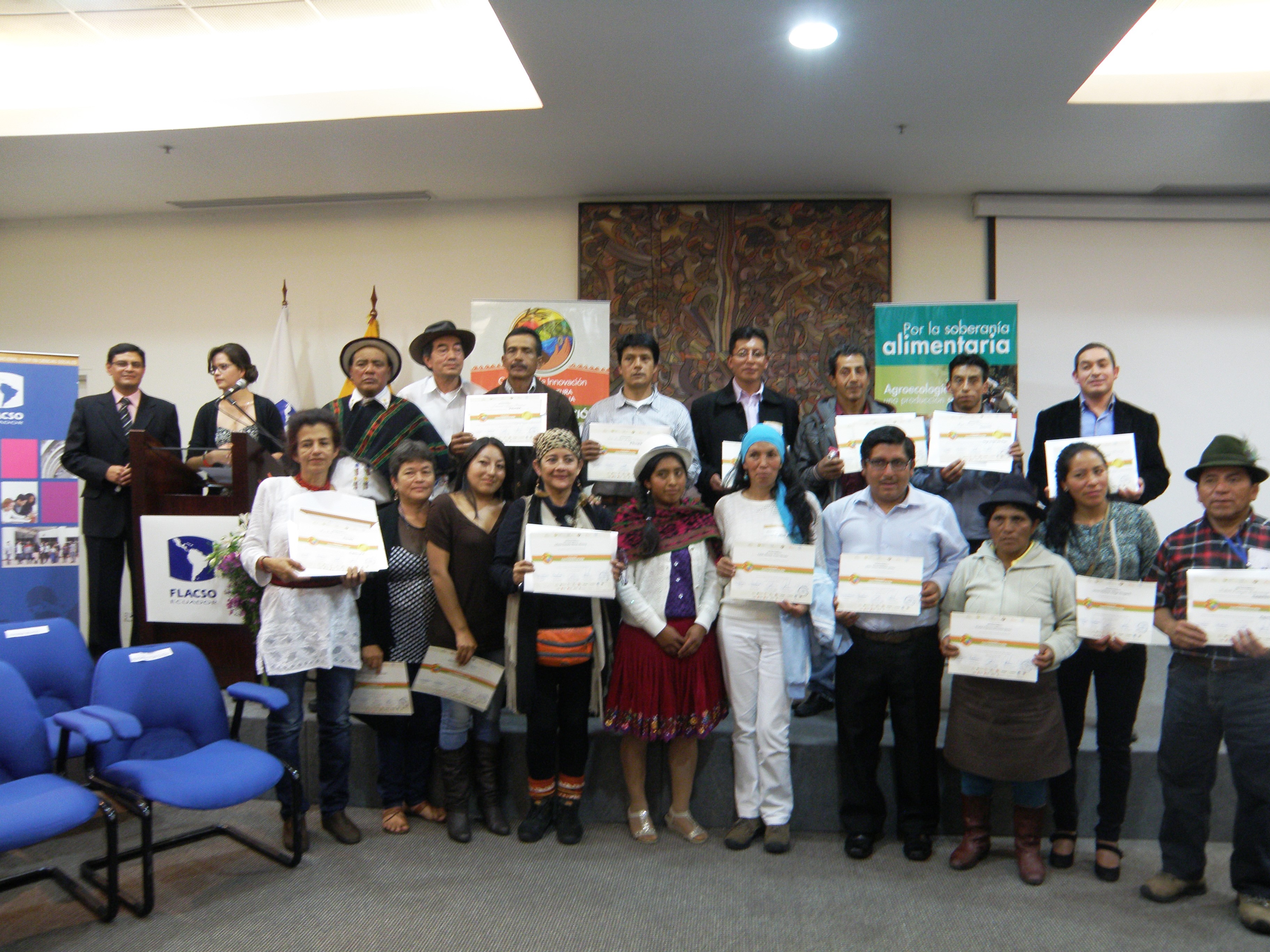From the sizzle in a pan, to the feel of cracking open a piece of salak, to the aroma and composition of a dish that, in the hands of the right chef, is best understood as art—culinary culture and much more were on display this year in Latitud Cero, the premier gastronomic congress in Quito. Both an academic gathering and a showcase for innovative products, it was the place to be from the 15th to the 19th of October for anyone with an interest in food.
There is a point where food transcends the sensorial experience and becomes nourishment, an opportunity for growth, and the connection to the land and our origins. Canopy Bridge was at Latitud Cero this year to highlight and promote these connections. We started on the 15th, immediately after the inauguration of Latitud Cero, when we organized a business roundtable titled “Agroecology in the Kitchen” in cooperation with the Ecuadorian chapters of the Heifer Foundation and the Slow Food Chefs’ Alliance, and with support of the Ministry of Culture and Patrimony.
[rev_slider lat_ronda]
[clear]
[clear]
Twenty-seven small-scale Ecuadorian farmers representing nineteen organizations, the finalists of CULTIVAINNOVACION—a contest rewarding excellence in agroecological practices—took part in the roundtable. Before the event, Canopy Bridge co-founder, Marta Echavarría, briefed the farmers for what was to be a business meeting; none had ever participated in an event like this, so preparation was key. Reaching out to the world in the language of commerce is a common challenge for small scale farmers, and we’re proud to have served as facilitators for the people who are stewards of the land, seeds and water in the Ecuadorian countryside.
On the other side of the tables were thirteen chefs and restaurateurs, the farmers’ counterparts in the creation of markets for sustainable products. Their interests and requirements were diverse, but so was what was on offer. We divided the farmers into three groups, representing the country’s diverse regions, and conducted three rounds of face-to-face encounters. A lively exchange filled the room, one that could have continued for many more hours. Farmers shared stories, contacts and samples, making exciting connections with potential buyers.
Latitud Cero proved to be a space ripe for the subject of our food’s origins. Canopy Bridge is proud to have sponsored chef Esteban Tapia, coordinator of the Slow Food Chefs’ Alliance in Ecuador, who gave a masterful presentation about the importance of sourcing locally while preparing a dish solely with Ecuadorian ingredients on the second day of the congress. We helped source fresh ingredients from the Galapagos while Canopy Bridge members, Mashpi, brought their own tropical rainforest ingredients to the mix. The result: Brujo wrapped in banana leaf cooked in a traditional clay pot, accompanied by a tropical fruit sauce. Unfortunately, the serving was far too small for the 100 people in the room.
[rev_slider lat_esteban]
[clear]
[clear]
Following Esteban’s presentation, we introduced Canopy Bridge and its online directory to an audience of chefs, students, researchers and journalists, and took the opportunity to showcase some of our local members. Fredy Shiguango from Asociación Wiñak and Agustina Arcos from Mashpi took the stage alongside Canopy Bridge co-founder, Jacob Olander, and told of their experience as small producers with innovative projects. Fredy is a member of a Kichwa association who grow, among other things, varieties of cocoa that can only be found in his people’s lands. It is still a challenge to make such enterprises economically viable, but high-end gastronomy may well have a role to play in support of this. Agustina, on the other hand, grows cocoa in a farm as part of an organization that has over 600 tropical fruit varieties and is truly a botanical treasure; making chocolate is a way to support such a project.
[rev_slider lat_pres]
[clear]
[clear]
“Chefs and gastronomy have an important role to play in connecting with campesinos, indigenous farmers and other rural producers, opening the door to broader markets, putting the spotlight on their efforts and revealing little-known ingredients to a broader audience,” commented Jacob. “Ecuador is waking up to its rich culinary potential, extraordinary cultural legacy and cornucopia of ingredients. In a way that just wasn’t happening even 10 years ago, the local market is tuning into these farmers and their products.”
[rev_slider lat_stands]
[clear]
[clear]
Our team enjoyed visiting the stands throughout the event, especially those belonging to our members, many of whom let visitors to the fair know that they could be found on Canopy Bridge. (We’d like to thank Café Vélez, Hoja Verde, Pacari, Huerta de Ina, Pakal, Mashpi, Agroindustrias Maquita, Asociación Kallari, and Hacienda Zuleta in particular, who were present at the event). We were also proud to sponsor a stand belonging to the tropical fruit farmers at Mashpi. Given that they cultivate over 600 fruit varieties from around the world, it was a success among chefs looking to find new flavors right here in Ecuador.
We would like to thank everyone that made our participation in Latitud Cero a success, including Mauricio Acuña (Latitud Cero’s organizer), Belén Naranjo (from Fundación Heifer Ecuador), Esteban Tapia, Fredy Shiguango and Agustina Arcos. We see a bright future in Ecuadorian gastronomy and we are happy to play a part in it as we look to our food’s origins for better ways to live in our world.
Cultivainnovación
Contest winners
[clear]



